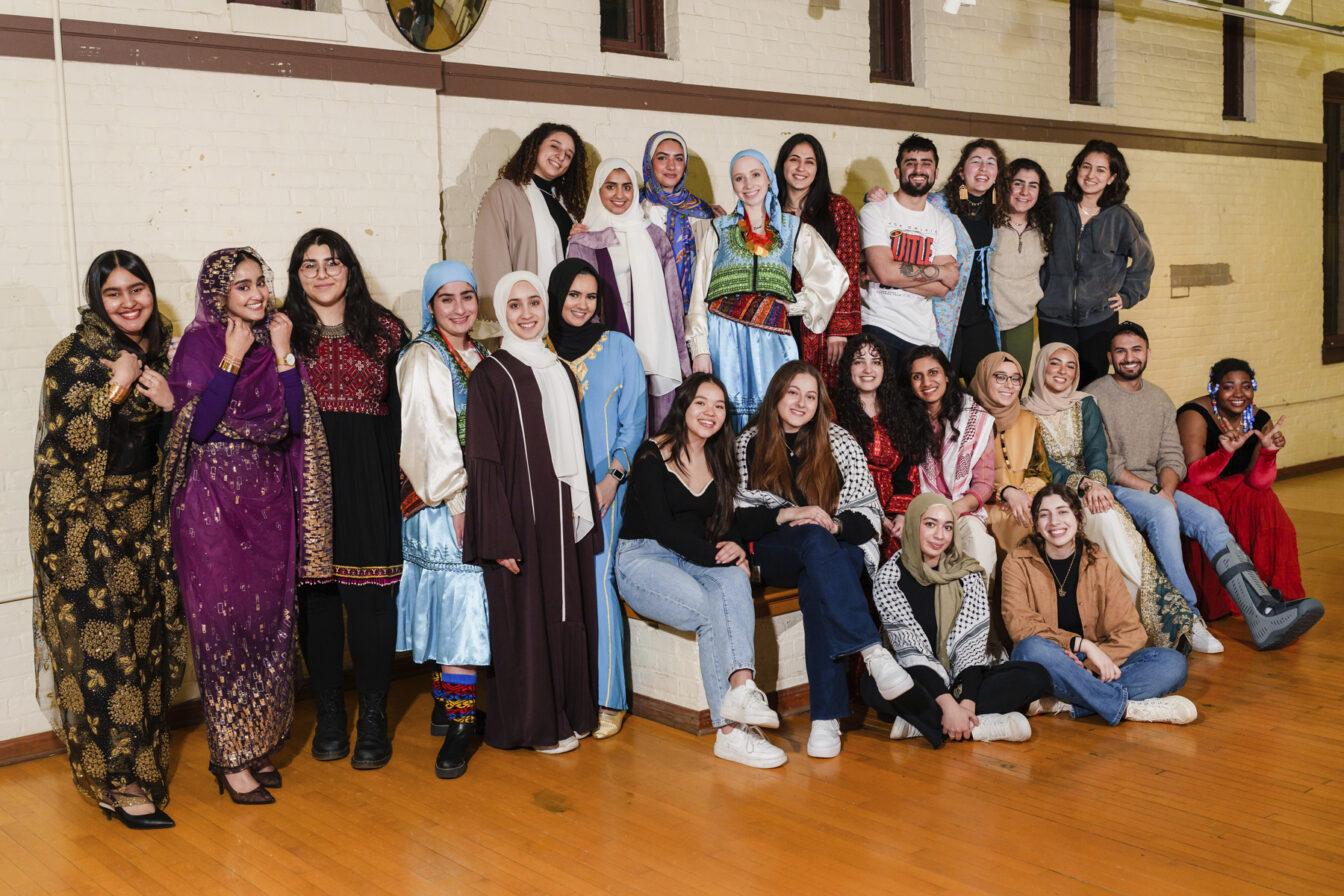Middle Eastern North African Heritage Month made its grand return this March thanks to University of Wisconsin student leader Dana Tabaza.
This month is meant to unite the different countries, cultures and heritages within the MENA and campus community. This year’s theme “Through The Eyes Of MENA” was constructed on pillars of safe space, thoughtful discussions and sentimental feelings of home, Tabaza said.
“The concept behind it, is we want people who are MENA or non-MENA to come to these events and to see this part of the world through our eyes because our part of the world is extremely misunderstood and has tons of negative media coverage around it consistently, especially from the west,” Tabaza said. “We wanted this to be an opportunity for the campus to see our identities through our eyes and away from all these misconceptions that you see online.”
There are nine events held throughout the month allowing different lenses of MENA culture to provide a glance into these identities through dance, food, music, poetry, conversation and more, according to the UW Student Affairs website.
During the fall semester, Tabaza felt frustrated with the lack of representation for MENA students on campus. There had been a small MENA Heritage Month celebration in 2018, but it received little attention and was not continued. Tabaza wanted to bring this back and met with the Multicultural Student Center’s Director Claudia Guzmán and Multicultural Programming Intern Haruka Padilla to find out how she could put this project into motion.
After gaining approval, she assembled a planning team, called the MENA Heritage Month Planning Collective, to help her organize all of the events. It consists of 40 students from 16 different student organizations eager to make MENA Heritage Month something meaningful for their community and the campus community, Tabaza said.
The MSC, which falls within Student Affairs, dedicated funding for the month of events and provided the collective with additional staff support for the planning, vision and implementation of this project.
While planning the events, Tabaza and the MENA Planning Collective wanted to include and represent all the different identities and organizations of MENA students such as the Arab Student Association, Saudi Student Association and more. The idea was to make this month of events a space for any and all MENA identifying students to attend and feel a sense of home and to give MENA students a space to celebrate their cultures and share their stories, Tabaza said.
“I think one of the most difficult things about working in communities of people of color is the lack of funding and the lack of support,” Tabaza said. “I wanted to be creative with who I partnered within these events and how we grouped the different organizations.”
For example, the art event March 28, “Crafting the MENA Identity: Art Night,” will provide different forms of history of many different MENA identities through art and activities such as painting, Tabaza said. This event takes place in the MSC Lounge from 7:30 p.m. to 9:00 p.m.
Tabaza and the collective also took into account the observation of Ramadan, the holy month of fasting in the Muslim calendar, which begins March 22. Those observing Ramadan foster community and observe religious traditions in various ways — including by fasting from dawn to dusk.
To foster inclusivity of all MENA students, students observing Ramadan will come together to eat an Iftar dinner before the events that fall during Ramadan. Additionally, the Muslim organizations on campus pool money together to provide dinners for all 30 days of Ramadan for these students, Tabaza said.
As a result of Tabaza’s planning to make this month special for MENA and non-MENA students, she earned the university’s first-ever title as the MENA Cultural Programming Intern. She is recognized as a student passionate for advocating for her peers and has also broken ground for MENA representation on campus.
The nine events are meant to bring students from all different backgrounds together to learn and share experiences and perspectives of MENA cultures. It is a way to give the MENA-identifying students recognition of their cultures and a way for them to connect and share a safe space, MENA Planning Collective member Azza Bayoudh said.
“[MENA Heritage Month] means a lot just because we get to celebrate our roots and our history, where our parents come from and our rich heritage,” Bayoudh said. “And it means a lot to see other MENA countries and cultures and to learn more about them because there’s so many MENA countries, and it’s a learning experience from my peers.”
Other heritage months at UW are student-driven efforts that the MSC supports to allow students to celebrate their cultures across a campus community. Students create themes for their heritage months and spend months planning and promoting their events that are entertaining as well as educational, according to UW Student Affairs.
Tabaza wanted this campus celebration for the MENA community and their heritage month to be similar to how the university honors Black History Month, APIDA Heritage Month and Latinx Heritage Month.
The first four events of the month have already attracted around 500 participants and Tabaza is confident that MENA Heritage Month will become an annual event. Through the planning and implementation of the events, it is hopeful UW Student Affairs will continue support for MENA efforts, according to UW Student Affairs.
“I’m incredibly proud of the work that MENA students have done to advocate for resources and programming that ensure that their community is centered, affirmed and celebrated at UW,” Guzmán said.
Editor’s Note: This article was updated to accurately reflect that the MSC operates underneath UW Student Affairs and that Ramadan began March 22.


